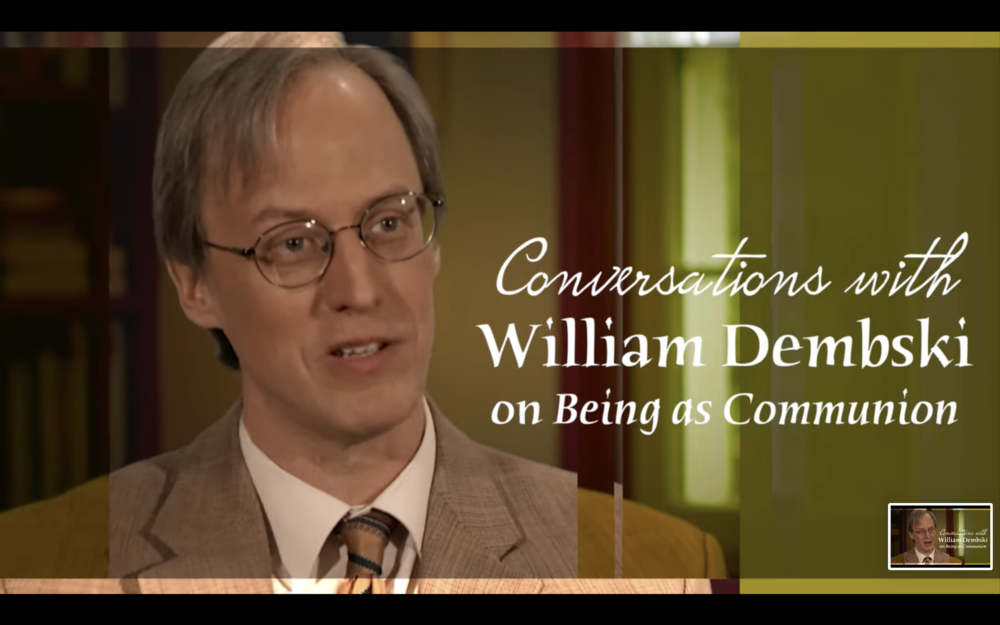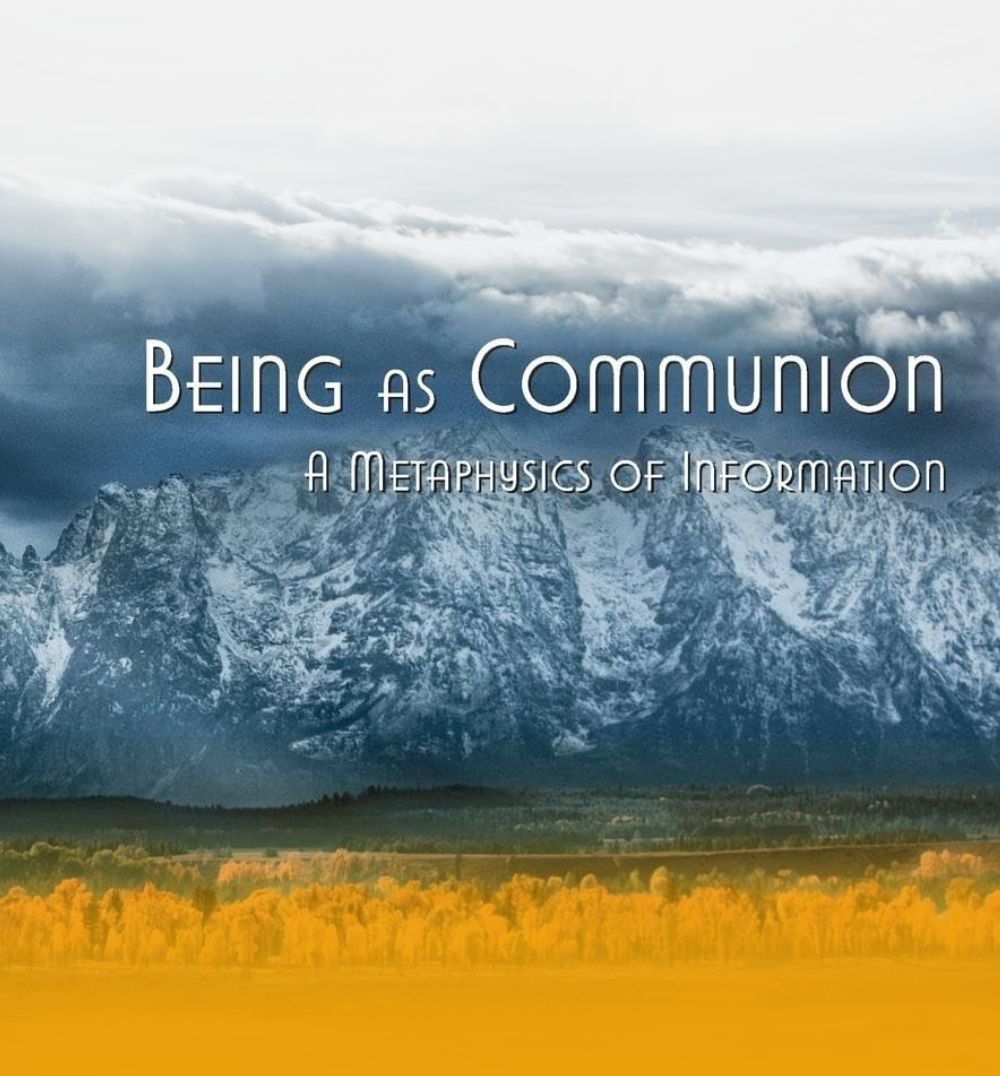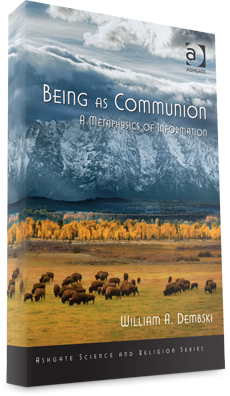

About the Book
In Being as Communion: A Metaphysics of Information, noted mathematician and philosopher William Dembski challenges the oft-made claim that mind is a myth and that everything about us — including our thoughts, our ethics, and our decisions — are ultimately the products of unguided material processes. Dembski provocatively argues that the opposite is true: In light of modern information theory, it is materialism, not mind that is the “myth.” The capstone of a trilogy that includes The Design Inference and No Free Lunch, Being as Communion is already being hailed as “staggeringly original,” “brilliant,” and “a tour de force.”
Topics addressed by the book include:
- how information, not matter, is turning out to be the primary “stuff” of the world.
- how information can help us understand what it means to have free will.
- how information can help us understand the existence of the soul.
- how information can be measured.
- how information poses a fundamental challenge to Darwinian evolution.
- how information gives fresh meaning to the ideas of Plato and Aristotle.
- how information lends support to the modern theory of intelligent design.
Along the way, Dembski rebuts several common misconceptions about the theory of intelligent design, and he explores common ground with non-theistic critics of materialism such as New York University philosopher Thomas Nagel, author of Mind and Cosmos: Why the Materialist Neo-Darwinian Conception of Nature is Almost Certainly False (2012).
Calling Dembski “one of the most original and rigorous thinkers of his generation,” University of Texas philosopher Robert Koons writes that “Philosophical and theological critics of the ‘intelligent design’ (ID) movement need to read this book, since here Dembski definitively smashes the common caricatures and misrepresentations of the movement… Dembski argues persuasively that information cannot be simply identical with its physical manifestations, and that the concepts of information and teleology are indispensable tools for the contemporary metaphysician.” Similar praise comes from neurosurgeon Michael Egnor at Stony Brook University Medical Center, who calls Being as Communion “brilliant and.. a desperately needed antidote to materialist tropes that have crippled modern science and philosophy.”
Dembski’s new book will be of interest to students, scholars, scientists, philosophers, theologians, and anyone with a desire to think deeply about the nature of reality and the meaning of human life in the cosmos.
Praise
Being as Communion is a masterpiece. Dembski’s treatment of information is deep, rich and staggeringly original, gathering together many different threads from theology, philosophy and science. In an intellectual world that prizes outrageous proposals, Dembski modestly seeks to turn the world upside down by making the case that information is more fundamental than matter or energy. He thereby illuminates the primacy of mind in the cosmos. This book is a fresh and significant threat to materialist imperialism
Mark Fitzmaurice, General Medical Practitioner, Sydney, Australia
William Dembski is one of the most original and rigorous thinkers of his generation, and his new book, Being as Communion, pulls together in a satisfying way the many threads in the theory of design and information that he has developed over the last 15 years. Philosophical and theological critics of the ‘intelligent design’ (ID) movement need to read this book, since here Dembski definitively smashes the common caricatures and misrepresentations of the movement, including the notion that ID is committed to a metaphysics that is mechanist, dualist, interventionist, or occasionalist. Dembski argues persuasively that information cannot be simply identical with its physical manifestations, and that the concepts of information and teleology are indispensable tools for the contemporary metaphysician.
Robert C. Koons, Professor of Philosophy, University of Texas, Austin
The first Scientific Revolution was the recognition that the book of nature was written in mathematics. The second Scientific Revolution—that the chapter on biology is written in information theory—is taking place in our lifetime. Biology is replete with information, from the genetic code and intricate intracellular nanotechnology to the obvious teleology of evolution. How can we make philosophical and theological sense of biological information? Bill Dembski, a pioneer in Intelligent Design science and a mathematician, philosopher and theologian, is uniquely situated to draw together the metaphysical implications of the information revolution in biology. Dembski succeeds astonishingly well. He asks the salient question: what if the fundamental stuff of the world is not matter but information? This rekindling of Platonic and Aristotelian insight is brilliant and is a desperately needed antidote to materialist tropes that have crippled modern science and philosophy. Dembski’s remarkable insight—that information in nature is communion—is metaphysical and theological sagacity of a high order. A magnificent achievement.
Michael Egnor, Professor, Department of Neurological Surgery, Stony Brook University Medical Center
Videos


A Fact Most People Don’t Know About William Dembski

The Meaning of Information
- Buy Now
- Barnes & Noble (Preferred)
- Bookshop (Preferred)
- Books a Million (Preferred)
- Amazon.com
- Routledge
Discovery Institute receives a royalty or a commission from the sales of this book from Preferred Sellers, which helps support its non-profit work.

